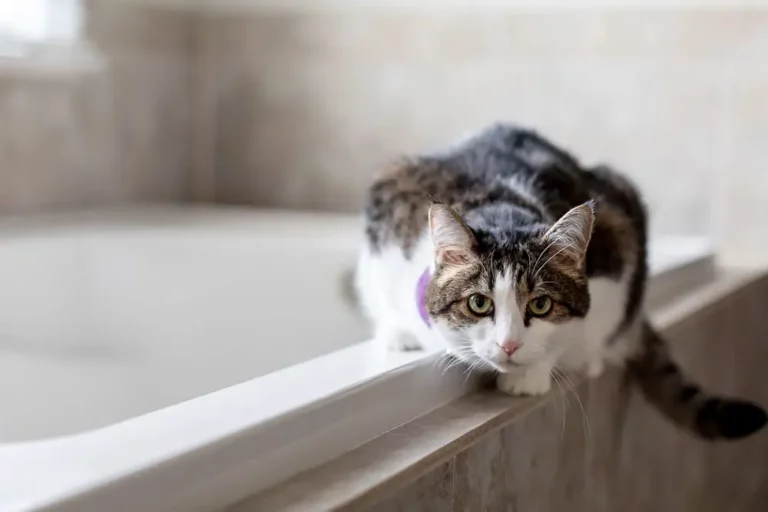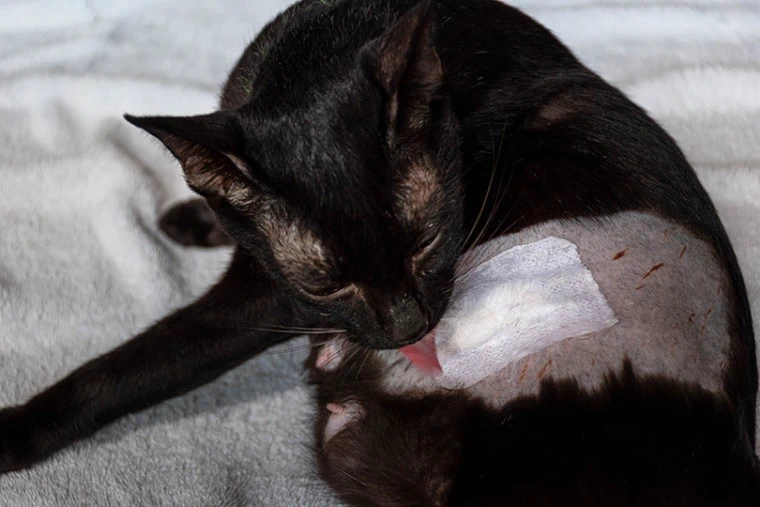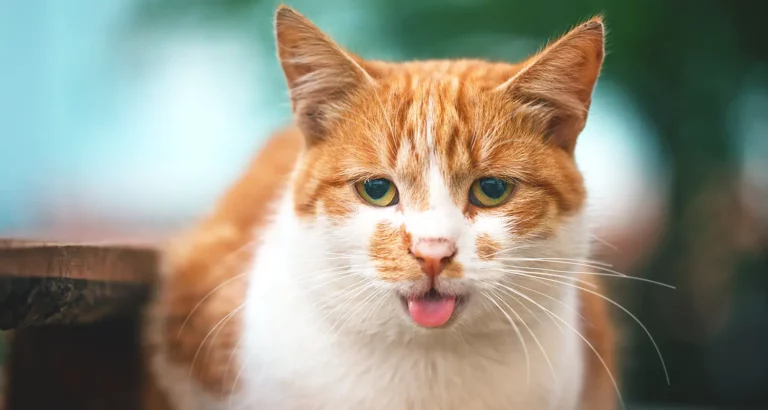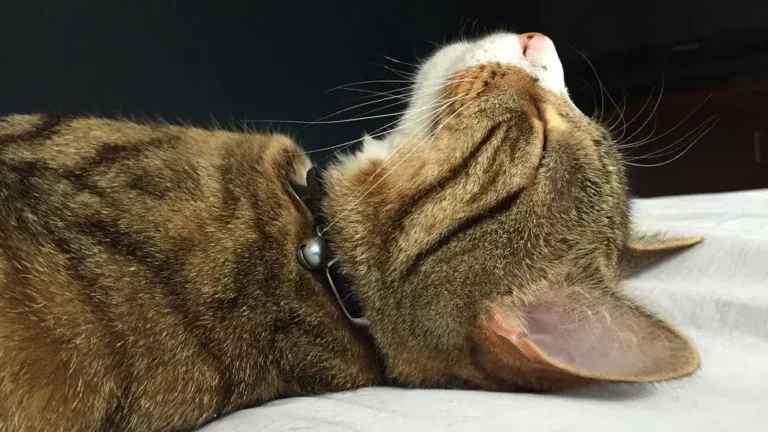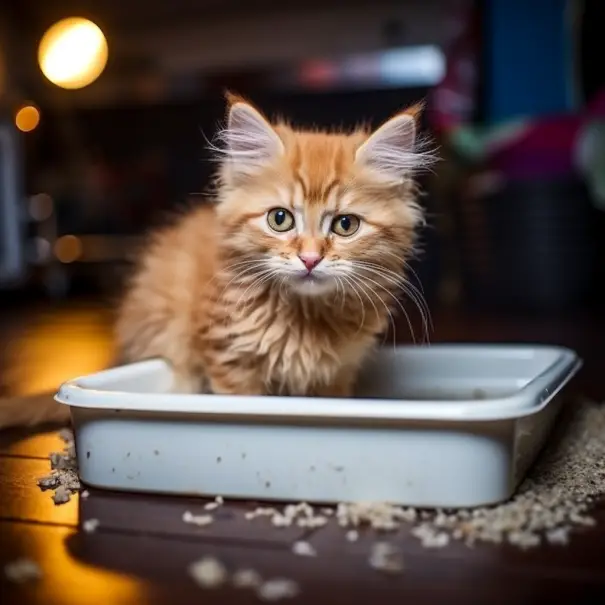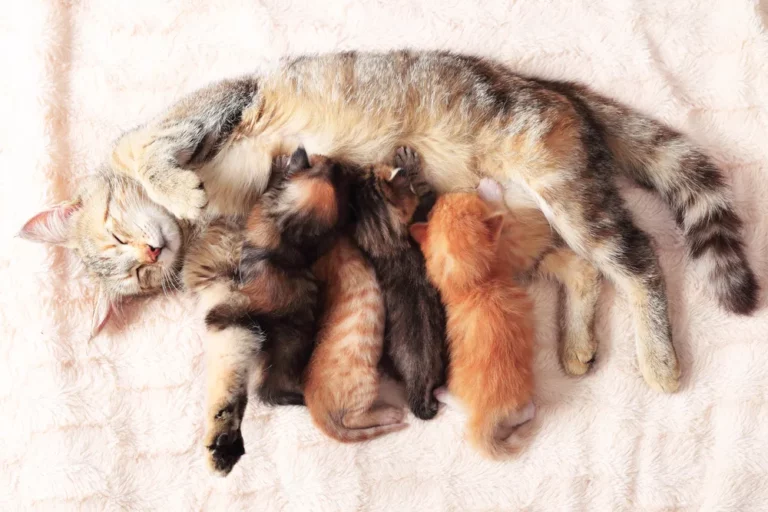Why is My Cat Clingy All of a Sudden? 5 Possible Reasons and What To Do!
Has your cat started following you around wherever you go, meowing for attention and curling up in your lap?
If you’re finding your feline friend to be more clingy than normal, there may be a few underlying causes.
Learn why this type of behavior might occur and find helpful tips on how to return to a more peaceful co-existence with your cat.
5 Obvious Warning Signs of a Clingy Cat
Many cats love to cuddle and spend time with their humans, but some cats can become too clingy, demanding too much attention and affection.
If you’re seeing certain signs from your cat, it could mean they’re feeling a bit neglected.
Here are five tell-tale signs you have a clingy cat on your hands!
1. Meowing excessively and following you around the house.
One of the first signs that your cat is feeling lonely and neglected is if they excessively meow in search of attention, particularly at night.
Additionally, a clingy cat may follow their humans around the house, always clamoring for cuddles, snacks or just some one-on-one time!
2. Frequent scratching of furniture or doorframes.
Cats may scratch furniture or doorframes if they feel as though their needs are not being met or as a way to mark their territory.
Clawing at surfaces can seem cute at first but it can quickly become an annoying and destructive habit.
If you catch your cat sharpening their claws on furniture, it could be a sign that your kitty is feeling neglected and is demanding more attention from you.
3. Stretching out for illogical reasons like laying all over your keyboard when you’re typing away.
Do you often find yourself typing away, only for your kitty to suddenly lay across your keyboard?
This can be a clear sign that your cat is craving attention.
Cats may stretch out in this way when they want to join you, cuddle up or simply try to show off.
Your cat may even bump their head against you or rub against your legs trying to grab your attention and show affection.
When it comes to cats, paying attention and providing lots of love is essential!
4. Knocking objects from shelves or tables often to get your attention – making it look like an accident!
Have you ever found your books and ornaments scattered across the floor from time to time?
This could be a sign that your kitty is trying to grab your attention.
Cats are mammals with powerful hunting instincts and often feel the need to display their talents – including throwing objects off tables for fun.
Your cat may even take pleasure in knocking items over, believing it’ll trigger your attention as well as provide an amusing game for them both.
5. Constantly wanting to play with you or be petted, even late into the night when they should be snoozing away!
As much as you love your furry companion, it’s important to recognize when they’ve had enough.
If your kitty is constantly trying to play or be petted even late into the night, this could be a sign that they’re demanding too much attention from you.
It’s important to set boundaries with cats and make sure she knows what her bedtime is and when it’s her time for a nap!
Give her plenty of stimulating toys to keep her entertained, such as chasing laser pointers, playing fetch with fuzzy mice, or batting around catnip filled balls.
5 Reasons for Your Cat’s Clingy Behavior
Here are several reasons why your cat is clingy all of a sudden.
Stress & Anxiety
Changes in environment, recent illness, extra stimuli from other animals or sounds can create stress and anxiety in cats.
If your cat is feeling anxious or fearful, they may look to you for comfort.
Try to identify what could be causing this stress and take measures to reduce it.
Create a safe, peaceful home space for them with plenty of places to hide and rewarding activities like scratching posts and interactive toys that will stimulate their minds.
Trying some regular calming exercises such as petting, or brushing can also help soothe their frayed nerves.
Bonding and Attachment
Attachment and bonding with you can be another cause of clinginess. Cats are social creatures, and they become attached to those they interact with regularly.
The more time you spend playing, grooming, petting or cuddling your cat the more secure they will feel.
If your cat seeks lots of physical attention from you, it could be a sign of strong love and appreciation for the bond between you.
Boredom and Lack of Stimulation
Another reason your cat might be becoming clingy is due to a lack of stimulation and boredom.
When cats don’t have enough toys, activities, or interaction with their owners they can become stressed and bored. This leads them to seek attention and engagement from you, often through clinginess behaviors.
Making sure your cat has plenty of toys, scratching posts and other engaging items is important for avoiding boredom behavior.
You can further supplement these items by engaging in interactive play activities with your cat each day.
Age-Related Changes
If you have an older cat, their clingy behavior may be related to age.
As cats age, they tend to need more attention and comfort from their owners.
They may also become more anxious or stressed due to changes in their environment or lifestyle.
Making sure your cat is comfortable in their home environment and receiving plenty of love and affection can help them adjust to any age-related changes they may be experiencing.
Learned Behavior
Another possible cause of clinginess in cats can be learned behavior. This is especially true if your cat has been around an owner that exhibited particularly loving, attention-seeking behaviors.
In this case, the cat may be mimicking these patterns of behavior and seeking out those same levels of love and affection from you.
Providing plenty of playtime and mental stimulation can help keep your cat entertained and engaged when you’re not able to give them direct attention.
How to Reduce Your Cat’s Clinginess
Is your independent and aloof feline suddenly seeking out your attention and showing signs of clinginess?
There could be a variety of reasons why your cat is becoming clingy, such as changes in their environment, anxiety, or even a medical issue, as discussed above.
Now learn more about how to help them cope with sudden behavioural changes.
Rule Out Medical Conditions.
Before considering environmental changes, look for possible medical causes for your cat’s behaviour.
If your cat is showing other behavioural changes, or if they appear to be feeling unwell in any way, it might be a good idea to make a trip to the vet.
Medical conditions such as thyroid problems, hyperthyroidism, urinary tract issues and arthritis can cause cats to become suddenly clingy and require treatments.
Provide Attention and Exercise.
When cats have physical and mental stimulation, their overall lifestyle is improved.
Playtime with interactive toys helps to keep their bodies and minds active, while quality time with you also reduces stress levels by providing companionship and love.
So, if your clingy cat is starting to show signs of anxiety, try spending some quality time interacting with them or playing a game of chase-the-pom-pom.
Introduce New Toys or Playmates.
Introducing new toys or playmates can help keep your cat stimulated, reduce their overall stress levels, and increase their desire to explore and play.
If you have multiple cats, let them share in the fun together.
Try introducing interactive cat toys such as scratching posts, laser pointers, feathers on a string, and more for hours of entertainment.
If you don’t have other cats around the house, consider getting another pet – like a dog – to keep your kitty company.
Identify Causes of Stress or Anxiety.
When cats become clingy, it could be a sign of distress due to environmental changes, health issues or problems with other pets.
Talk to a vet if your cat has ongoing behavioral or health issues.
If the problem appears to be emotional, try activities such as puzzle feeders to keep them mentally active and potentially reduce stress.
Feliway diffusers may also help ease anxiety in cats – they contain synthetic cat pheromones which can create a calming environment for them.
Consider Changes to Their Environment.
Sudden clinginess in cats may also be caused by environmental changes that the animal perceives as a threat.
Have you recently moved house or made redecorations to a living space? If so, your cat may be feeling disorientated and acting out of character because of this.
Try providing them with familiar scents from home, such as a blanket that smells like their old home or lulling music that your pet was used to hearing.
Additionally, ensure other pets are not bullying or being aggressive towards your beloved pet!

